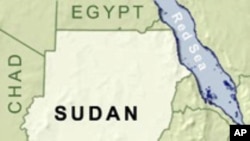U.S. President Barack Obama will soon unveil a new policy for Sudan
that takes a softer approach than the president called for during his
campaign for the White House.
Administration officials say the
plan, which will be announced Monday, calls for working with the
Sudanese government using a mix of pressure and incentives.
The
new policy is aimed at convincing Khartoum to stop human rights abuses
in the troubled Darfur region, settle disputes with the semi-autonomous
south and cooperate more fully in the fight against terrorism.
The
Obama administration settled on its new strategy after months of heated
debate, particularly between U.S. ambassador to the United Nations,
Susan Rice, and the U.S. special envoy to Sudan, Scott Gration. Rice
argued for a more hard line approach than Gration.
In a show of unity, Gration and Rice will be present when Secretary Clinton unveils the new policy Monday.
Mr.
Obama had pledged during his presidential campaign to isolate Sudan
whose president, Omar al-Bashir, has been indicted for war crimes.
The
International Criminal Court has accused President Bashir of
masterminding a campaign of rape, murder and other crimes against
Darfur civilians.
On Friday, Sudanese officials in the north and
the semi-autonomous south announced they had reached an agreement on
how to conduct a 2011 referendum on the south's full independence.
Previously,
south Sudan had accused the north of trying to undermine the
independence vote. The referendum is part of a 2005 peace deal between
the north and the south that ended 21 years of civil war.
News
New US Policy to Offer Incentives, Pressure for Sudan
update
